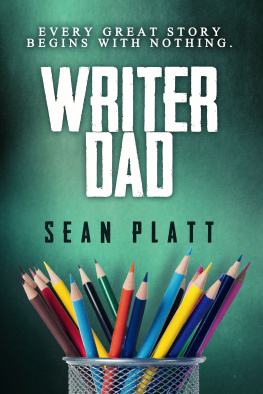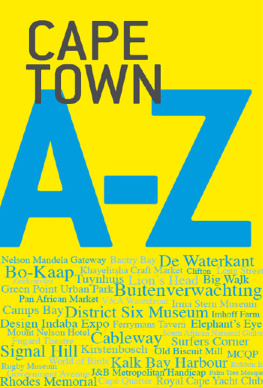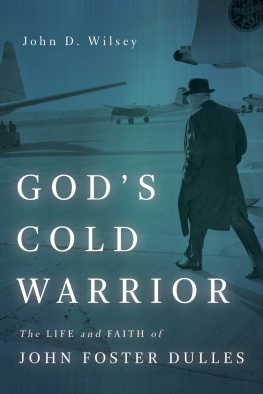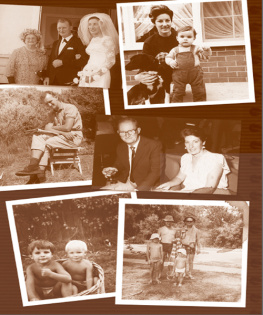MORE CURIOUS
ALSO BY THE AUTHOR
Oh the Glory of It All
AS CO-EDITOR
The Thinking Fans Guide to the World Cup
State by State: A Panoramic Portrait of America



McSWEENEYS
SAN FRANCISCO
www.mcsweeneys.net
Copyright 2014 Sean Wilsey
Cover design by Dan McKinley.
Some of this work appeared in different form in McSweeneys Quarterly Concern, the Big Bend Sentinel, the London Review of Books, National Geographic, the New York Times, Time.com, GQ, the New York Times Magazine, Fast Company, and Vanity Fair.
Illustrations by Sammy Harkham (p. 87, 131, 150, 153, 243, 249, 279), Pierre Dubois (p. 149, 157, 161, 172, 182, 198, 339), Sunra Thompson (p. 239), and Albrecht Drer (p. 119, 145).
All rights reserved, including right of reproduction in whole or in part, in any form.
McSweeneys and colophon are registered trademarks of McSweeneys, a privately held company with wildly fluctuating resources.
ISBN 978-1-940450-54-4
For Daphne

The notion that the species can be improved in some way, that everyone could live in harmony, is a really dangerous idea. Those who are afflicted with this notion are the first ones to give up their souls, their freedom. Your desire that it be that way will enslave you and make your life vacuous.
The New York Times Magazine, April 19, 1992 ()
W hen the Times printed the statement above (which Ill discuss, along with the person who said it, later in this book) we were in our first full year postCold and Gulf wars. After remedying the cause of Los Angeless race riots and knocking the unemployment rate from 7.5 percent down to 4.0 percent, the worlds sole superpower was going to get down to the serious work: containing the global population explosion and reversing a full-on environmental crisis. Bill Clinton and Al Gore were elected for this reason. Or thats why I voted for them. In the absence of any credible enemies the opportunity to reverse our collective doom and evolve into an Edenic state had to get grabbed with both hands. It was also the only momentpost-wars, pre-Netwhen the president and the press had the authority and the U.S. had the power to force the world to focus its attention on a single topic.
In the service of this goal Stanford University was funding a study on optimum human population, published in 1994. There were 5.5 billion people in the world thena number that included two Stanford scientists and an ecologist from UC Berkeley who thought this was more than double the ideal. If we didnt move fast, they said, wed wind up housed and nurtured by methods analogous to those used to raise battery chickens.
They wanted to see density, resource availability, and cultural diversity DJed into a harmonious global ambiance: the population of the United States should be small enough to permit the availability of large tracts of wilderness for hikers and hermits, yet large enough to create vibrant cities that can support complex artistic, educational, and other cultural endeavors that lift the human spirit. A Stanford press release called for national and international discussions of lifestyle preferences so we could reach a consensus and get to work as soon as possible. The scientists held up 1930 as the exemplar: many great cities, giant industrial operations, and thriving arts and letters. A great diversity of cultures existed, and members of many of them were not in contact with industrializing cultures. Large tracts of wilderness remained in many parts of the world. This in unattractive contrast to nowadays, or early-1990s thenadays, when, Unfortunately, many cultures borne by small groups of people are in danger of being swamped by the dominant culture with its advanced technologies and seductive media.
To which I feel compelled to reply, from the current 7-plus-billion-people vantage point (and in the spirit of of the April 19, 1992, NYT Mag):
:(
* * *
Obviously none of this went anywhere. All America wanted to talk about was transparency. Not guilelessness, or anti-secrecy, but, literally, see-through-ness: colorless cola, clear beer, soap-that-was-not-milky. Coke, Microsoft, Miller, Pepsi, Procter & Gamble all launched clear or crystal products that were, as the Trends Research Institute put it: an attempt by marketers to generate more sales of existing product lines reformulating the products under the belief that clear means purity. Its a very shallow concept. The national media named this brief whim the clear craze, lavishing a marketing campaign with the blanket coverage it was expected to devote to a news event. The Los Angeles Times dubbed it all a search for clarity.
I noticed when Coors, for which I was the target demographic, took its weakest lager and filtered it through charcoal to remove color and taste, then added citrus flavor, creating a sort of nonlethal floor cleanser called Zima, which sold 1.3 million barrels (322,400,000 bottles) in its first year.
In one Zima ad a young woman asked a young man, manning a grill, Are those free-range burgers?
His reply, Who cares? Have a Zima.
And then:
Q: If Monica Lewinsky says that while you were in the Oval Office area you touched her breasts, would she be lying?
A: That is not my recollection. My recollection is that I did not have sexual relations with Ms. Lewinsky and Im staying on my former statement about that. [I did not have sexual relations with that woman, Miss Lewinsky.]
Q: If she says that you kissed her breasts, would she be lying?
A: Im going to revert to my former statement.
Q: OK. If Monica Lewinsky says that while you were in the Oval Office area you touched her genitalia, would she be lying? And that calls for a yes, no, or reverting to your former statement.
A: I will revert to my statement on that.
Q: If Monica Lewinsky says that you used a cigar as a sexual aid with her in the Oval Office area, would she be lying? Yes, no, or wont answer?
A: I will revert to my former statement.
Q: If Monica Lewinsky says that you had phone sex with her, would she be lying?
A: Well, that is, at least in general terms, I think, is covered by my statement. I addressed that in my statement, and that, I dont believe, is
Q: Let me define phone sex for purposes of my question. Phone sex occurs when a party to a phone conversation masturbates while the other party is talking in a sexually explicit manner. And the question is, if Monica Lewinsky says that you had phone sex with her, would she be lying?
A: I think that is covered by my statement.
Next page












